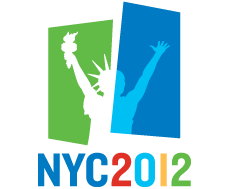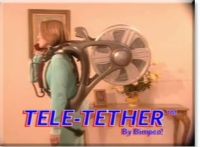Hershey Foods is close to announcing a deal with Mexican singer Thalia Sodi to appear in ads developed for general and Hispanic U.S audiences. The deal is another of several deals that have capitalized on the crossover appeal of Hispanic artists. Thalia is known for both her singing and her acting in Spanish language soap operas.
Thalia already has a deal with smart for a collection of branded apparel, accessories, footwear and lingerie.
Board Room cleavage will hit the cover of FHM in May as four fired contestants of "The Apprentice" strip down to their lingerie in a move that is yet another confirmation of what we've known since the dawn of man - if you can't use your head, use your body. And from the looks of it, these women do have the bodies to succeed. Giving credit where credit is due, the women did turn down a $250,000 offer from Playboy to pose nude. Perhaps there are some smarts attached to those rockin' bodies.
Still, the obsession with hotness reigns supreme. When working at Planet Hollywood during the show, Katrina Campins noticed a guy flirting with Ereka Vetrini and said to him, "Doesn't she look like J. Lo," spinning Vetrini around and adding, "Look at her Ass!"
Following in the footsteps of The Donald, AOL will launch an online reality series called, "The Startup" which will follow four small business for a year. The series will be featured on AOL's small business service but available to all of AOL's 24 million members. AOL is working with Entrepreneur magazine to produce the series that will include weekly updates on weblogs by the business owners, monthly stories and video vignettes. Somehow, this just doesn't sound even remotely worth viewing. The Board Room is where its at.
Forehead advertising, which has been around for a while and amounts to placing a logo on one's forehead, has seen on of its biggest uses to date. Yesterday, an army of 40 people with Toyota Scion logos on their foreheads walked around Times Square to promote Toyota's newest Scion, the tC coupe. Cunning of London worked with Toyota to create the campaign.
Because its new and different, it's getting noticed which is the name of the game in advertising. Unfortunately, there will come a time when weary consumers will either tune out forehead messaging or, conversely and more strangely, look upon those whose foreheads do not have a logo emblazoned cross it as some sort of loser. Photo courtesy of Ad Age.
RSS, or Really Simple Syndication, is a bit of technology used to deliver content from many sources to one desktop or web-based application. It allows readers to scan and read topics of their choosing in an uncluttered environment. That is, until advertisers heard about it. Faced with difficult issues surrounding email marketing, advertisers are looking for a new channel to communicate with consumers. RSS is one of those channels.
RSSAds is one company that is betting RSS will emerge from early adopter stage to mass market use. RSSAds helps advertiser place ads in syndicated RSS newsfeeds by matching users aggregated content with contextually relevant ads. The difficulty will lie, as it always does, in user acceptance of this model. After all, RSS was designed, clearly, to be as uncluttered as possible and advertising, at least in the consumer's mind, does fall into the clutter category.
Today, Nielsen will announce plans for a new service called Nielsen Video Games that will measure exposure to ads in video games. The ratings company will also release preliminary findings from its Total Viewing Sources report on usage of the television to play video games. The study claims 7 to 8 percent of men 18-34 and 15 percent of teens are playing video games during prime time.
Unlike conventional Nielsen television ratings, the new Video Games service will measure actual ad exposure and ad recall. Already, preliminary research has shown 27 percent of male gamers have noticed in-game ads and 70 percent say the placement of real products in-game make the game a more realistic experience.
Now if only Nielsen could hurry up and do the same for measurement of TV ads instead of the antiquated programming method in place today.
 Not at the Game, Honey! This week's Out to Launch from MediaPost's Amy Corr features several new ad campaign including one from Bravo promoting its new "Significant Others" series in which improvisational actors and comedians script themselves in various "stunts." Other new campaigns this week include a humorous real life portrayal of Orbitz's travel site, a Sega campaign poking fun at the super heroes promoting its new Sonic Heroes video game, a print campaign from EAS promoting its Myoplex health supplement, a Hartford-based campaign promoting the American Originals Rare Document Exhibit and one from Schick with good 'ol "Survivor: boy Colby hawking the new four bladed razor.
PETA has launched a controversial billboard campaign in British Columbia that centers on reports that alleged serial killer Robert Pickton may have mixed the remains of women with pig flesh sold from his farm. In what some might call a cheap shot, PETA campaign director Bruce Friedrich says the campaign's goal is to remind people that animals go through the same pain and suffering during death.
The billboard, referring to pig slaughter, as well as the alleged slaughter of several women, says, "Neither Of Us Is Meat." The campaign is one in a long line of morally questionable campaigns urging consumers to consider the vegetarian lifestyle. One has to wonder, though, what a corn cob feels like when its ripped from its stalk.
Larger billboard image here.
The NYC Olympic Bid Committee has introduced its NYC 2012 logo which Gothamist points out looks quite gay and one Gawker reader mentions the erie resemblence to the fallen WTC calling it a sort of Gay Death. Perhaps Ogilvy&Mather, who created the logo, might want to re-think and re-submit.
NewYorkish offers its suggestion for a more honest version of the logo.
Cricket Wireless, another of the many smaller cell phone startups, is promoting its services with a Ronco-style web site offering some ingenious ways to keep your cell phone bill down. From a device that locks away your phone during peak hours to a door mounted bill rejection unit to a strap on home phone carrier with massive land line holder, the website, called Bimpco, touches on the pain points of owning a cell phone.
Upon initial visit, one is not quite sure what Bimpco is all about but after some exploration of the product areas and a click on the Buy Now button, all is revealed. Presented with a pop up window asking if you are crazy enough to actually consider buying one of these products, you are then taken to Cricket Wireless actual website where there calling plans are detailed. It's one of the better forms of viral advertising out there right now. The work was done by Butler, Shine, Stern and Partners in Sausalito, California

|








